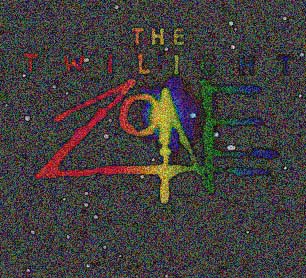 |
||||||||||||||
|---|---|---|---|---|---|---|---|---|---|---|---|---|---|---|
| Original Story by Ray Bradbury | ||||||||||||||
| Directed by J. D. Feigelson | ||||||||||||||
| Original Airdate - November 15, 1985 | ||||||||||||||
|
||||||||||||||
| Story: | ||||||||||||||
|
||||||||||||||
One of the first episodes of the series to really test the bounds of science, "The Burning Man" is compact, evocative, and brutally effective. Based on Ray Bradbury's short story of the same name, it doesn't have a single extra word in the script. It plays out handily to its eerie ending. When I watch this, I always compare it with other productions made around that time. The first comparison which comes to mind rests with kooky character actor Roberts Blossom and the premiere episode of Speilberg's "Amazing Stories" from the same time period, mid-1980's. Both have Mr. Blossom out for a car ride, both have him playing versions of his nom de plume, off-kilter character. But while Spielberg's midnight train segment was soaked with sentimentality and heavy-handedness, "The Burning Man" is a something else entirely. For once, Bradbury's lyrical dialogue gets a proper conduit...the segment is Blossom's and he makes the most of it, speaking his lines with enthusiasm and vigor. And despite the non-stop patter, the underlining story is never ham-fisted. The danger is implied. The menace is underscored. At no time does anyone say: "Hey, that nutty old guy was born out of the mud today, and by nightfall, he'll be a little boy in a clean white suit, and he'll eat us." You don't realize that till the very end. The other comparison is to the Ray Bradbury Theater, which ran in the same year on HBO and was not at all successful. I had the misfortune to watch about 80% of "The Ray Bradbury Theater" and outside of the 1st season on HBO and rare USA channel productions ("The Emissary"), the major fault I can attribute to "RBT" as a whole is the acting and direction. Bradbury himself transcribed all the episodes but his dense, stylized dialogue sounded like a bad poetry slam in the wrong hands. Despite the fact that USA's budget for the show seemed to be rock-bottom every season, with proper casting and a guiding directorial hand...there could have been quality. J. D. Feigelson's directing of "The Burning Man" is spare and economical, and the editing is appropriate. Feigelson wrote the truly frightening 1981 TV movie "Dark Night of the Scarecrow," which was finally released on DVD and Blu-ray in 2012, way overdue in my opinion. You can see some parallels to that TV movie here as well, because the pacing and sheer mounting tension of "The Burning Man" are similar. What amazes me with the segment is the quality of acting and direction. Tone is established without ever seeming to be forced. This is a truly tight segment in which every word and facial expression/reaction matters. Plus, the vintage costuming and golden haze which hangs over this adds a faded photograph quality to the segment. The final shot of the silent car with the sound of locusts escalating...excellent. Right up there with NTZ's best ground-to-sky tilt-ups like "The Shadow Man." In this first attempt at bringing Bradbury to the small screen, the new Twilight Zone outdoes Bradbury's own series with simple, good, old-fashioned storytelling. |
||||||||||||||


